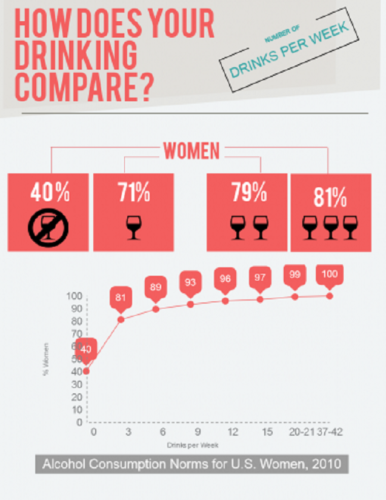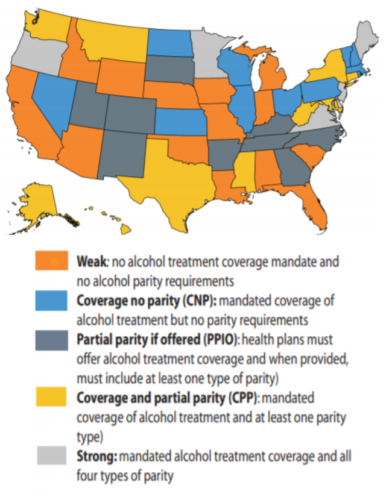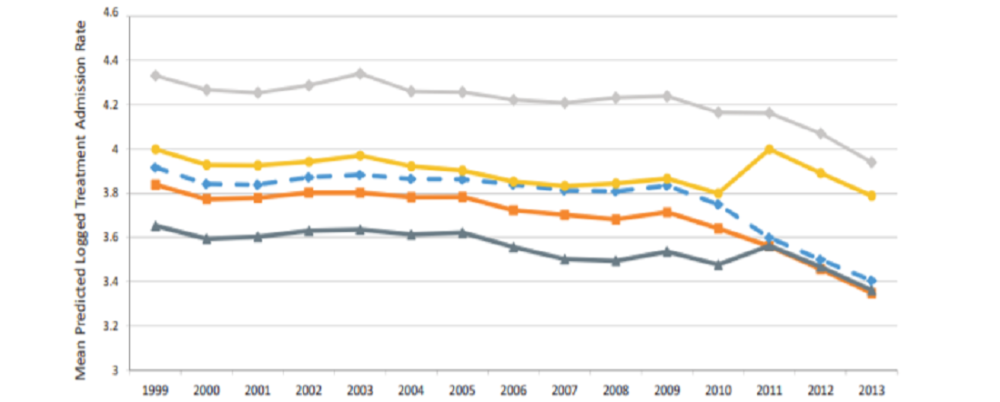
National Alcohol Research Center

Since 1977, the Center has been funded by the National Institute on Alcohol Abuse and Alcoholism (NIAAA) and housed within the Alcohol Research Group. With a focus on disparities, the Center studies bio-psycho-social determinants of addictive processes involving alcohol and other drugs and conducts the US National Alcohol Survey every five years.
Our Impact
See all National Alcohol Research Center Impacts

- 129 published articles in peer-reviewed journals
- 127 presentations at national & international conferences
- 19+ affiliated national & multinational projects
Projects
Active Projects
- National Alcohol Surveys: Advancing Epidemiologic Analyses of 21st Century Drinking
-
The implementation of the 2024 National Alcohol Survey will deepen our knowledge of how to collect high quality survey data and biological samples, responding to contemporary survey research challenges. Expanding the NAS series to 45 years will provide us with new data to develop and examine up-to-date trends in alcohol use and problems, and potential disparities in the risk for alcohol-related problems across gender, socioeconomic and racial/ethnic groups. We will also learn whether inflammation partially explains alcohol’s effect on psychological distress, and address disparities in these effects among racial/ethnic groups, level of education, and neighborhood status. Co-Directors: Priscilla Martinez, William C. Kerr
- Health Disparities in Alcohol Use and Other Risk Behaviors after the Onset of Cancers and Cardiovascular Disease-Related Conditions
-
A large segment of the US population lives with chronic conditions adversely affected by drinking. Given our integrative approach, study findings will uniquely contribute to the knowledge base for multi-faceted interventions that can simultaneously address harmful drinking and other risk behaviors to help improve disease management, treatment adherence and overall health of individuals with alcohol-related health problems. Our results concerning disparities in knowledge and behaviors across demographic subgroups will help identify those at high risk for continued drinking with health conditions and inform contextually-relevant interventions targeted at them. Co-Directors: William C. Kerr, Won Kim Cook
- Quality of Alcohol-Related Care Received: Missed Opportunities, Disparities and Impacts of Health Reform
-
Unhealthy drinking and alcohol use disorder (AUD) together affect more than one of every four American adults and are a leading cause of preventable death, with tremendous economic and social costs. This study seeks to increase understanding of gaps in the quality of alcohol-related care received among unhealthy drinkers and persons with AUD, and how this is changing with health reform. Based on analyses of national survey and specialty treatment data, study results may help to stimulate efforts of clinicians, healthcare administrators, treatment providers, and policymakers to improve access to quality alcohol-related care for all. Director: Nina Mulia
- High-Intensity Drinking over the Life Course
-
This work will broaden our knowledge of both the precursors to and the outcomes of high-intensity drinking (HID) at various points over the life course, also estimating the public health burden attributable to high alcohol intake. This research project is poised to improve HID measurement, track HID trends over time, and enhance theory by contextualizing intensity within an individual’s overall drinking pattern, drinking history, event-level characteristics, and individual and environmental influences. Finally, this research will aid in improving prevention and treatment strategies by better identifying suitable target subgroups and provide information to help shape design of future interventions aimed at reducing harmful drinking intensities among a range of adults, from young adults to middle-aged and older Americans. Co-Directors: Camillia K. Lui, Thomas K. Greenfield
Completed Projects
- Disparities in Alcohol-related Risks for Injury, Diabetes and Cardiovascular Morbidity and Mortality
-
This project looks at health disparities in alcohol-related injuries and chronic conditions. Analysis of alcohol’s role in risks for these health issues among disparate populations helps our understanding of how to reduce alcohol-related disparities through policy, prevention and treatment. Data is used to assess major causes of illness, injury, disability and death in areas of the US where significant alcohol-related racial/ethnic and socioeconomic disparities occur. Director: William C. Kerr
- Statistical and Data Services (SDS) Core
-
SDS serves as the primary source for biostatistical consulting, analyses, training, and database management for Center projects and ARG scientific staff. Three biostatisticians with varying expertise in cutting-edge methods support the research process including hypotheses generation, survey design and monitoring, database development, and analysis formulation and implementation. Hands-on workshops ensure the latest techniques are applied. Director: Meenakshi Sabina Subbaraman, PhD
- Graduate Research Training in Alcohol Problems: Alcohol-Related Disparities
-
This fellowship program’s goal is to develop independent alcohol researchers who can contribute to the growth of knowledge in alcohol studies in areas including epidemiology, treatment, and policy. The program recruits and trains promising behavioral and epidemiological pre- and post-doctoral fellows with a focus on alcohol-related disparities. Our program has supported over 230 trainees since 1977. Director: Sarah E. Zemore, PhD
- Pilot Studies Core
-
This Center Core funds a 5-year program of pilot studies designed to extend the Center’s research methods and agenda as well as directly enable NIH grant applications relevant to our focus on alcohol-related disparities. The program fosters innovative research while addressing the research and career development needs of our Center’s most promising junior investigators. Director: Sarah E. Zemore, PhD
- National Alcohol Survey (NAS) Resource Core
-
The NAS conducts periodic surveys of alcohol use by US adults. Recent design refinements in the 2019-20 NAS include address-based sampling and recruitment to an online survey. It also include large African American and Hispanic oversamples. The team prepares analytic datasets that include geo-referenced contextual data drawn from census and other archival sources. The NAS has been conducted since the mid-1960s. Co-directors: Katherine Karriker-Jaffe, PhD and Thomas K. Greenfield, PhD
- Hotspots: Understanding Areas of Concentrated Alcohol and Drug Problems at the US-Mexico Border
-
This Research Project extends analyses of the US-Mexico Study of Alcohol and Related Conditions (UMSARC), a large epidemiological study conducted from 2011-13 that targeted the border region and sampled both the US and Mexico. Project aims are to better characterize, contextualize, and explain the observed geographic variation across UMSARC sites toward a better understanding of how and why substance use problems cluster in some, but not all, border areas. Director: Sarah E. Zemore, PhD
- Differential Effects of Alcohol-related Policy across U.S. Population Subgroups
-
Broad, evidence-based public health interventions may not benefit all segments of the population. Drawing upon different national data sets, this study examines the impacts of alcohol control policies and recent healthcare policies on racial/ethnic, gender, and age subgroups. It aims to estimate the reduction in disparities associated with hypothetical policy changes implemented across the U.S. Director: Nina Mulia, DrPH
- Center Supplement: Supplement: Epidemiology of Alcohol Problems: Alcohol-related Disparities
-
The 2019-2020 National Alcohol Survey (N14) completed fielding on April 20, 2020 with 80% of cases collected before March 2020 and included web survey respondents recruited through address-based sampling and telephone respondents recruited through random digit dialing. This project, led by William C. Kerr, center director and senior scientist, will re-survey 1,500 N14 participants with a follow-up focused on drinking, substance use, and COVID-19 risk behaviors and attitudes. New questions include recent substance use behaviors and problems, physical and mental health, and COVID-19-related risk behaviors, attitudes and impacts, including job loss and financial insecurity, mask wearing, hand washing and congregating in groups of non-household members. Director: William C. Kerr

Work With Us
You change the world. We do the rest. Explore fiscal sponsorship at PHI.
Support Us
Together, we can accelerate our response to public health’s most critical issues.
Find Employment
Begin your career at the Public Health Institute.










